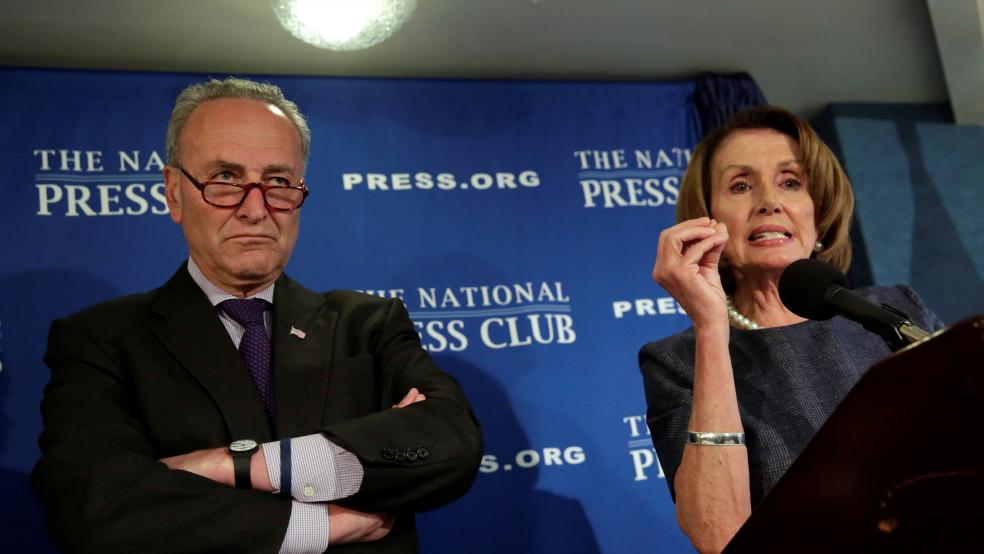Call it a September surprise: President Trump on Wednesday sided with Congressional Democrats over leaders of his own party and agreed to a deal to extend the debt ceiling and fund the government through December 15.
The agreement, which would also include emergency funding for Hurricane Harvey disaster relief, postpones what promised to be a prickly fiscal showdown until later this year — and it blindsided Republicans who were pressing to extend the debt ceiling through next year. House Democratic Leader Nancy Pelosi and Senate Democratic Leader Chuck Schumer announced the agreement in a joint statement just a short time after House Speaker Paul Ryan slammed a Democratic proposal for a three-month deal.
“I think that’s ridiculous and disgraceful that they want to play politics with the debt ceiling at this moment when we have fellow citizens in need, to respond to these hurricanes so we do not strand them,” Ryan said at a Wednesday morning news conference.
Related: Fact Checking Trump’s Claim That the US Is the ‘Highest Taxed Nation in the World’
Democrats had sought a short-term agreement in order to maintain their leverage on issues due to come up again this year, including the federal budget, stabilizing health insurance markets and immigration. GOP leaders wanted the debt ceiling hike to extend through 2018, preventing them from having to confront the issue again before next year’s midterm elections.
“Both sides have every intention of avoiding default in December and look forward to working together on the many issues before us,” Pelosi and Schumer said in their statement.
As the president was meeting with congressional leaders, the House was voting overwhelmingly, 419-3, to approve an initial $7.85 billion in Hurricane Harvey disaster relief funding. But the House’s next vote on disaster relief likely would not have been as easy. Republican leaders reportedly planned to attach a debt-limit increase to the bill in the Senate, potentially alienating conservatives opposed to linking the two measures. The House Freedom Caucus on Tuesday said they would only vote for a debt ceiling increase if it capped federal spending at 20 percent of GDP, The Hill reported.
“The president agreed with Sen. Schumer and Congresswoman Pelosi to do a three-month [funding extension] and a debt ceiling into December, and that’s what I will be offering based on the president’s decision, to the bill. And we’ll try to get 60 votes and move forward,” Senate Majority Leader Mitch McConnell said. “The president can speak for himself, but his feeling was that we needed to come together to not create a picture of divisiveness at a time of genuine national crisis. And that was the rationale.”
The question now may be whether Republicans in the House will play along.
What It Means: Beware the ides of December! The new deal must still pass Congress, but if it does, it would create a massive fiscal cliff just before the end of the year. Congress will have to raise the debt ceiling again and negotiate a critical spending bill for 2018 while potentially dealing with DACA and immigration as well as tax reform. What are the odds this Christmas is merry in D.C.?
This artcile was updated at 3:40 pm EDT.





